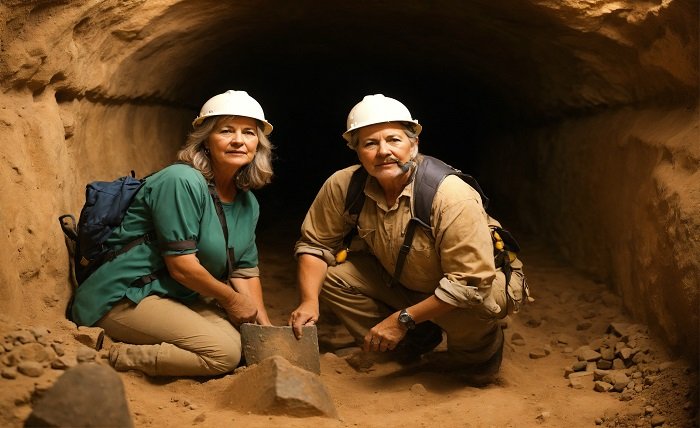Smart Mining: Essential Tips for Artisanal Miners

Artisanal and small-scale mining (ASM) plays a crucial role in the global supply chain for minerals like gold, diamonds, cobalt, and tin. Millions of miners around the world depend on this activity for their livelihoods. However, working with limited resources and knowledge can pose significant challenges in terms of safety, productivity, and sustainability. That’s why “smart mining” — applying thoughtful, efficient, and safe practices — is key to success. Here are essential tips to help artisanal miners operate more effectively and responsibly.
1. Prioritize Safety First
Safety should be the number one priority in any mining operation. Accidents underground or in open pits can be deadly and often stem from preventable causes such as poor planning, weak structures, or lack of proper gear.
Tips:
- Always reinforce tunnels and shafts with sturdy supports.
- Wear appropriate protective equipment: helmets, boots, gloves, and masks.
- Conduct daily inspections of mining areas for signs of instability.
- Learn basic first aid and keep a first aid kit onsite.
- Avoid working alone — always use a buddy system when underground.
2. Use Tools and Equipment Wisely
Many artisanal miners rely on hand tools or basic machinery. While limited access to equipment can be a challenge, maintaining the tools you do have is essential for efficiency and safety.
Tips:
- Keep all tools well-maintained — regularly sharpen picks and shovels, and clean equipment to reduce wear and the risk of accidents.
- Use simple transport aids like wheelbarrows, hand winches, or pulleys to move ore and rocks efficiently, minimizing the risk of injury from heavy lifting.
- Whenever possible, invest in basic gold mining equipment such as sluice boxes, gold pans, rock crushers, or trommels. These can help you process more material faster and recover more gold with less effort.
- Take advantage of training opportunities to learn proper operation and upkeep of machinery. Well-used and well-maintained tools last longer and deliver better results.
3. Practice Efficient Extraction Techniques
Smart mining isn’t just about working harder — it’s about working smarter. Maximizing yield while minimizing waste helps both the environment and your bottom line.
Tips:
- Focus on the richest ore zones first, guided by visual cues or basic prospecting tools.
- Avoid over-mining a single area — rotate locations to let the land rest and reduce long-term damage.
- Use proper sorting techniques to separate valuable minerals from waste.
- Learn basic geology to better identify high-potential areas.
4. Adopt Environmentally Friendly Practices
Artisanal mining often gets a bad reputation due to its environmental impact, especially when toxic substances like mercury are used. Mining responsibly not only protects your health but also preserves the land for future generations.
Tips:
- Avoid using mercury or cyanide. Consider alternative techniques like gravity concentration or borax-based processing.
- Properly dispose of waste rock and tailings to prevent water contamination.
- Refill pits and tunnels after mining to reduce erosion and protect local ecosystems.
- Plant trees or grass on disturbed land when possible to help with land recovery.
5. Keep Accurate Records
Although many artisanal miners work informally, keeping records can help track progress, measure success, and secure potential funding or permits.
Tips:
- Log daily outputs, expenses, and sales to understand profit margins.
- Record areas mined to prevent overlap or disputes with other miners.
- Use maps or GPS (if available) to mark productive zones.
- Maintain receipts or documentation for equipment purchases and sales.
6. Build Community and Collaborate
Artisanal mining is often done in groups or cooperatives. Working together can enhance safety, increase bargaining power, and open doors to new opportunities.
Tips:
- Share knowledge and tips with fellow miners.
- Pool resources to invest in shared equipment.
- Form cooperatives to access government support or NGO training programs.
- Participate in local decision-making to advocate for fair policies and infrastructure improvements.
7. Seek Training and Legal Compliance
Governments and non-governmental organizations (NGOs) often offer training on safe mining practices, environmental stewardship, and legal regulations.
Tips:
- Attend workshops or training sessions whenever possible.
- Stay updated on local mining laws and strive to operate legally.
- Obtain necessary permits to avoid fines or shutdowns.
- Explore certification programs that can help you access better markets.
Final Thoughts
Artisanal mining is a challenging but vital occupation for millions around the globe. By adopting smarter, safer, and more efficient practices, miners can increase their income, protect their health, and ensure a more sustainable future for their families and communities. Whether you’re working with a pickaxe or a small processing unit, smart mining starts with informed choices and a commitment to continuous improvement.





